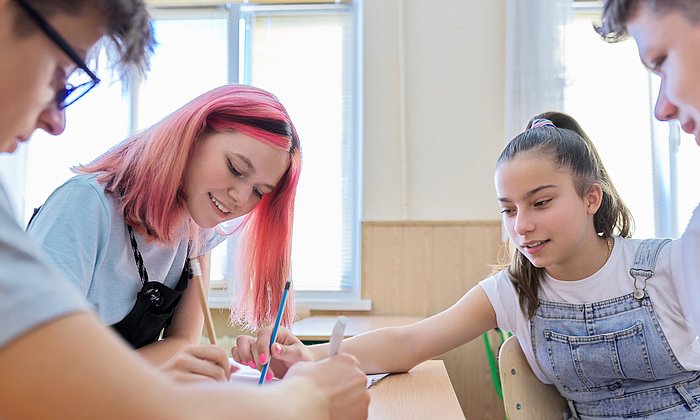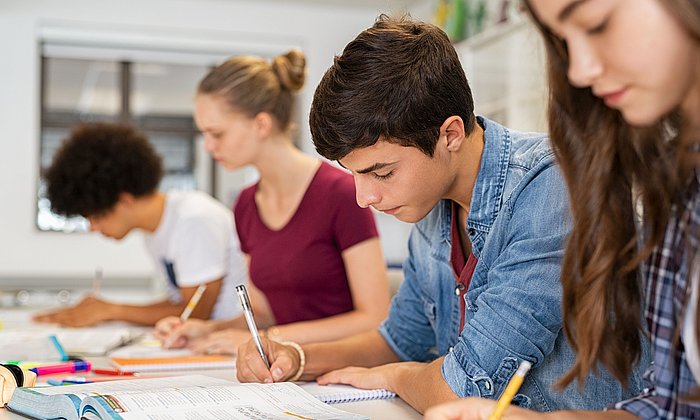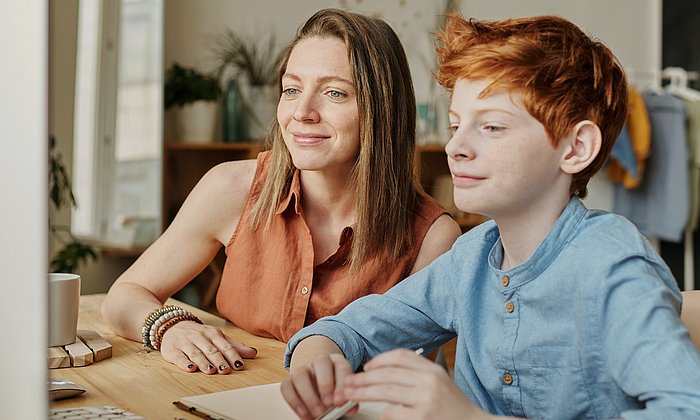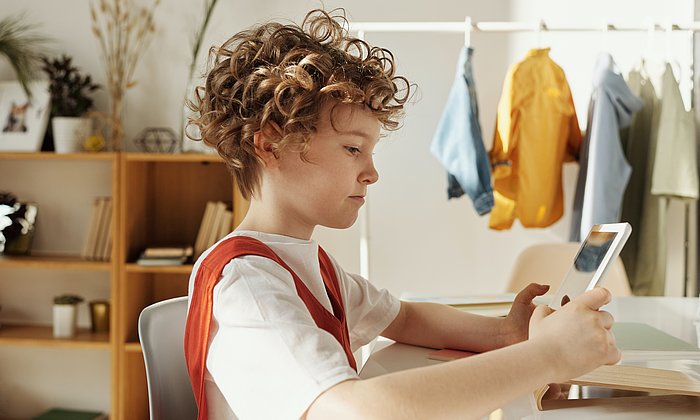New PISA study
Teens uncertain how to assess online information
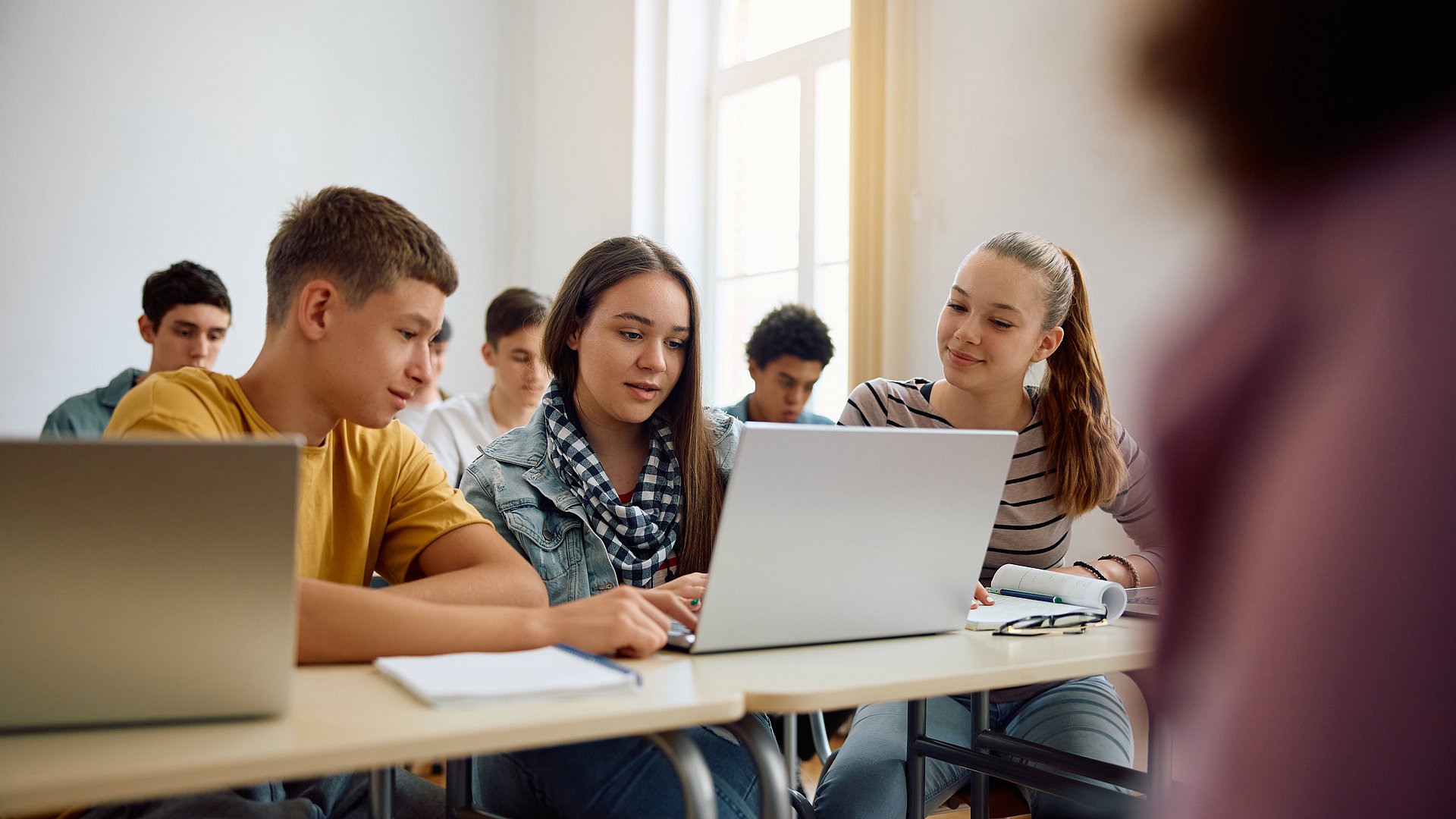
Are teens confident in their ability to distinguish between trustworthy and fake information online? In the most recent PISA study, 15-year-old secondary school students were asked to rate their own skills in finding and evaluating digital information. The study team in Germany has now completed a separate analysis of this aspect of the survey. Most of the results were not published with the main study.
The PISA study shows that teens in Germany think that they have the necessary skills to find information online. More than two thirds (69%) of the 15-year-olds said that this task poses no problems for them. After finding the information, however, fewer than half (47%) of the students feel capable of properly evaluating it – as compared to the OECD average of 51%. Only around 60% of the teens in Germany stated that they compare multiple sources – well below the OECD average of 72%. Moreover, around one third of the 15-year-olds in Germany do not check the accuracy of online information before sharing it on social media.
“Plenty of ground to make up”
“A lot of pupils are unfortunately not sufficiently skilled in detecting fake news. They have plenty of ground to make up in dealing critically and thoughtfully with online information. The PISA study underscores the urgent need to tackle this shortcoming to prepare young people for the challenges of the digital world,” says Prof. Samuel Greiff of the Center for International Student Assessment (ZIB) at the Technical University of Munich (TUM), the head of the PISA study in Germany.
The eighth Program for International Student Assessment (PISA) study, conducted in 2022, assessed the skills of a representative selection of approximately 6,100 15-year-old secondary school students attending around 260 schools of all types in Germany. The students also answered a questionnaire about learning conditions, attitudes and social background.
Socio-economic status linked to competency
The research team also examined the factors influencing the results. There is strong correlation between the students’ self-efficacy, their interest in digital media and their socio-economic status. 15-year-olds who consider themselves strong in these areas or are better positioned from the outset, rate their skills more highly. Girls reported checking the accuracy of online information more often and using different sources in their searches.
The pupils were also asked to rate the digital competencies of their teachers and their openness to the use of digital media. Only around half of the young people believe that their teachers have the necessary skills to use digital devices in the classroom. This is significantly lower than the OECD average of 70%. Around 60% of the 15-year-olds state that their teachers are open to the use of digital media in the classroom. This is also well below the OECD average of 77%.
These perceptions are important because the study reveals a link with the teens’ self-assessment of their own skills. “Both the digital competency of the teachers and their openness to digital media can help to improve the digital information competency of their students”, says Samuel Greiff. “Consequently, teachers should receive support in making the handling of online information a routine component of their lessons in various subjects.”
Digital media are often unreliable
The main PISA 2022 study already showed that the self-reported use by teachers in Germany of digital tools in lessons and homework is below the OECD average. The majority of responding school principals stated that their teachers lacked the necessary preparation time to incorporate digital media and that schools do not have sufficient trained personnel for technical support.
The new analysis now shows that only 60% of teens (OECD average: 71%) say that digital media function reliably in their schools. In addition, only 46% of the pupils, well below the OECD average of 67%, find that digital media are easily accessible in the classroom.
Tamara Kastorff, Maren Müller, Clievins Selva, Samuel Greiff, Stephanie Moser: Fake News oder Fakten? Wie Jugendliche ihre digitale Informationskompetenz einschätzen und welche Rolle Schulen und Lehrkräfte dabei spielen – Erkenntnisse aus PISA 2022. Münster 2025. DOI: 10.31244/9783830999935
-
The PISA studies are coordinated by the Organization for Economic Cooperation and Development (OECD). The German part of the study was headed by the Center for International Student Assessment (ZIB) on behalf of the Standing Conference of the Ministers of Education and Cultural Affairs and the Federal Ministry of Education and Research. Partners in the ZIB, alongside TUM, are the Leibniz Institute for Research and Information in Education (DIPF) and the Leibniz Institute for Pedagogy of Natural Sciences and Mathematics (IPN).
-
The results of PISA 2022 in mathematics, reading and science were published in December 2023. The results in creative thinking were published in June 2024.
Technical University of Munich
Corporate Communications Center
- Klaus Becker
- klaus.becker@tum.de
- presse@tum.de
- Teamwebsite
Contacts to this article:
Prof. Dr. Samuel Greiff
Center for International Student Assessment (ZIB) at the Technical University of Munich (TUM)
Chair of Educational Monitoring and Effectiveness
Tel.: +49 89 289 24214
samuel.greiff@tum.de

